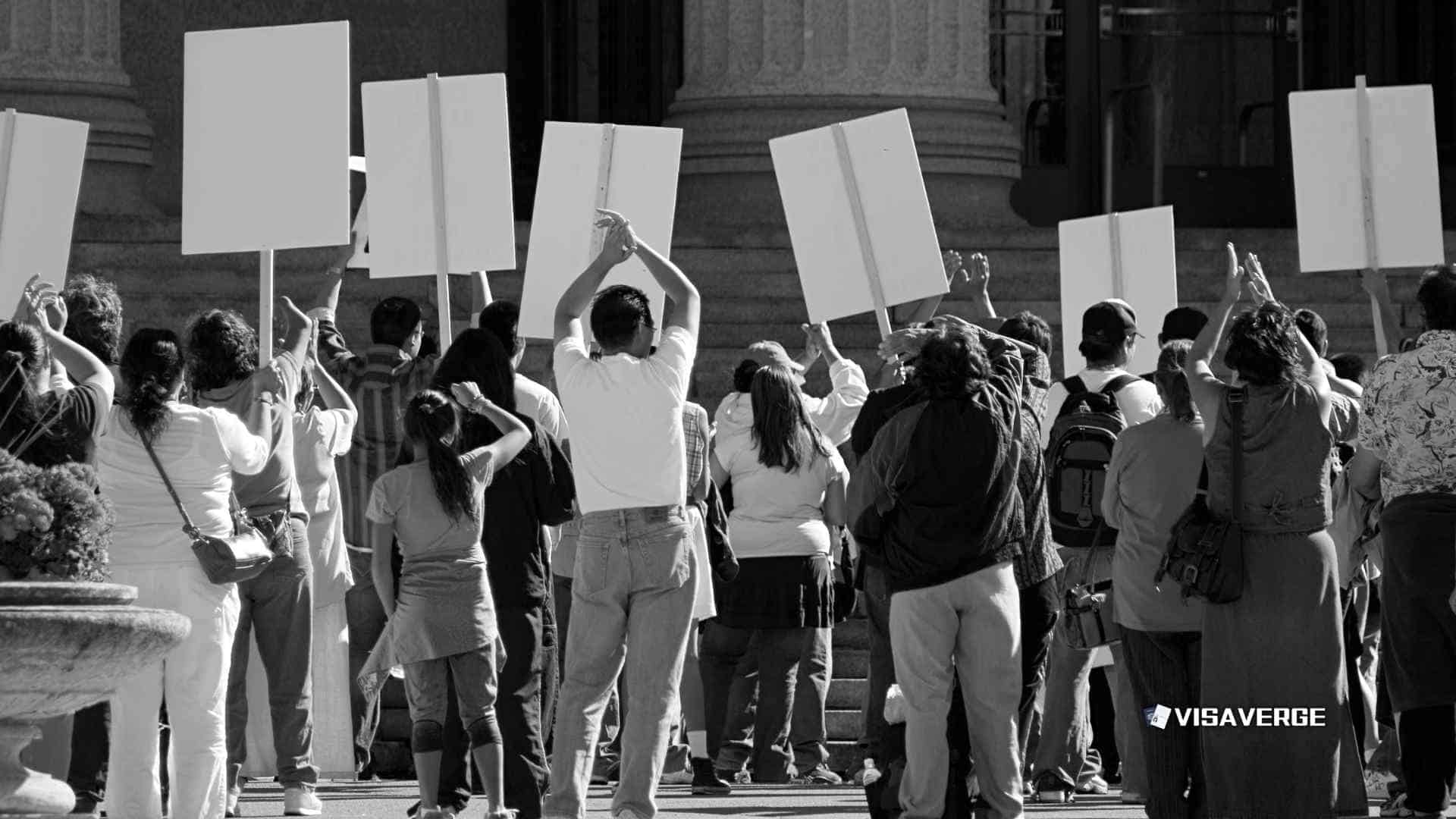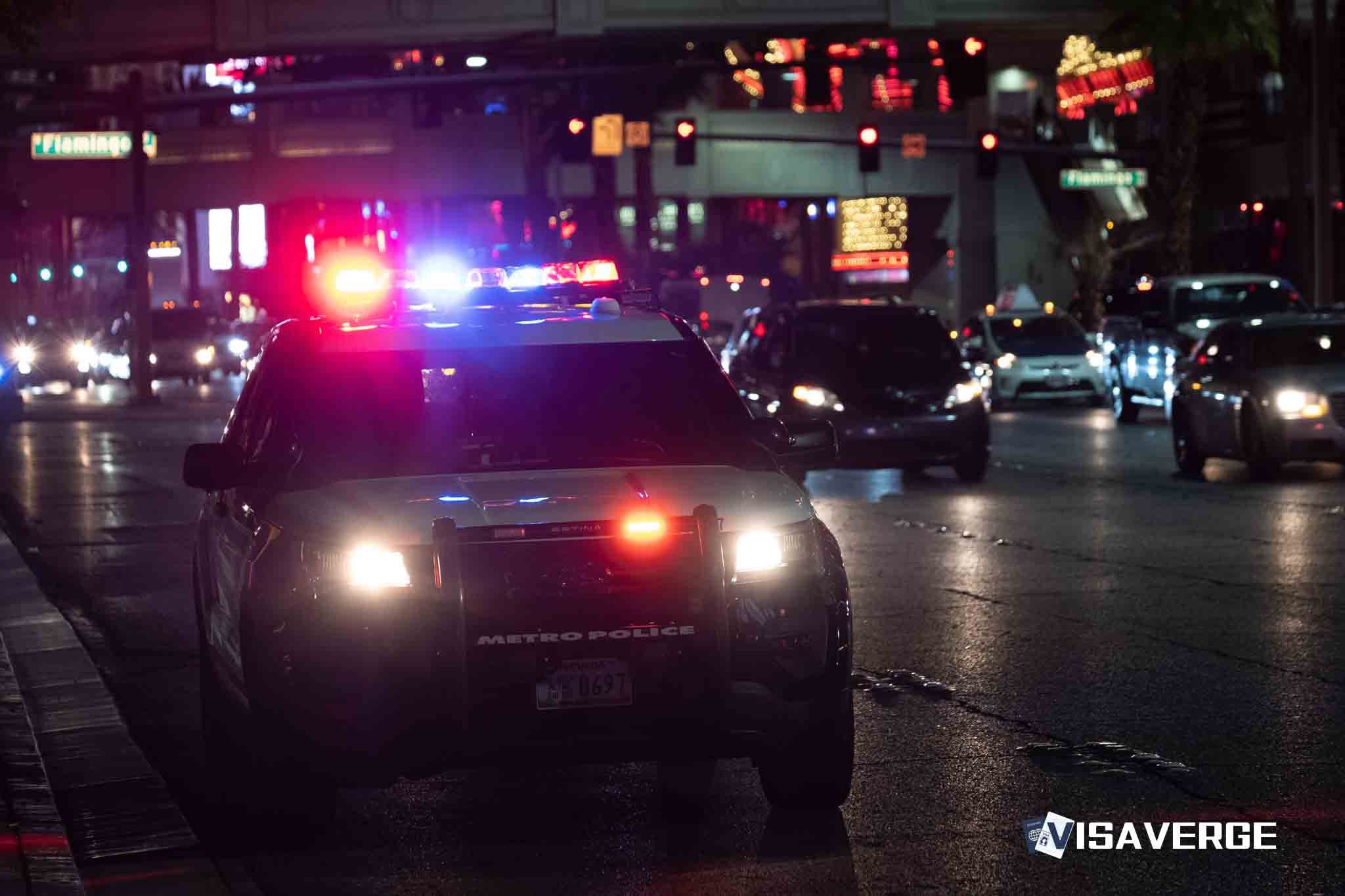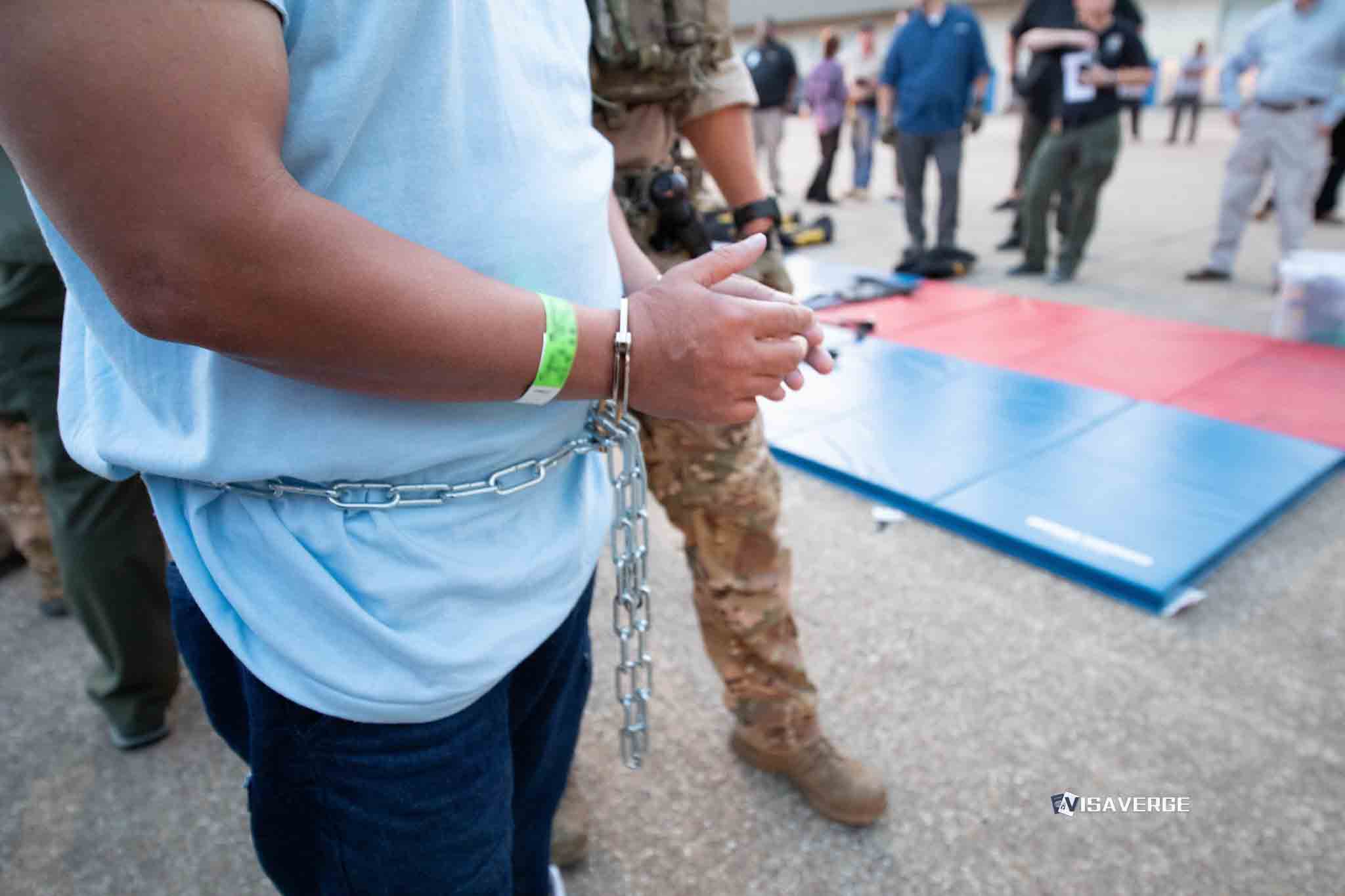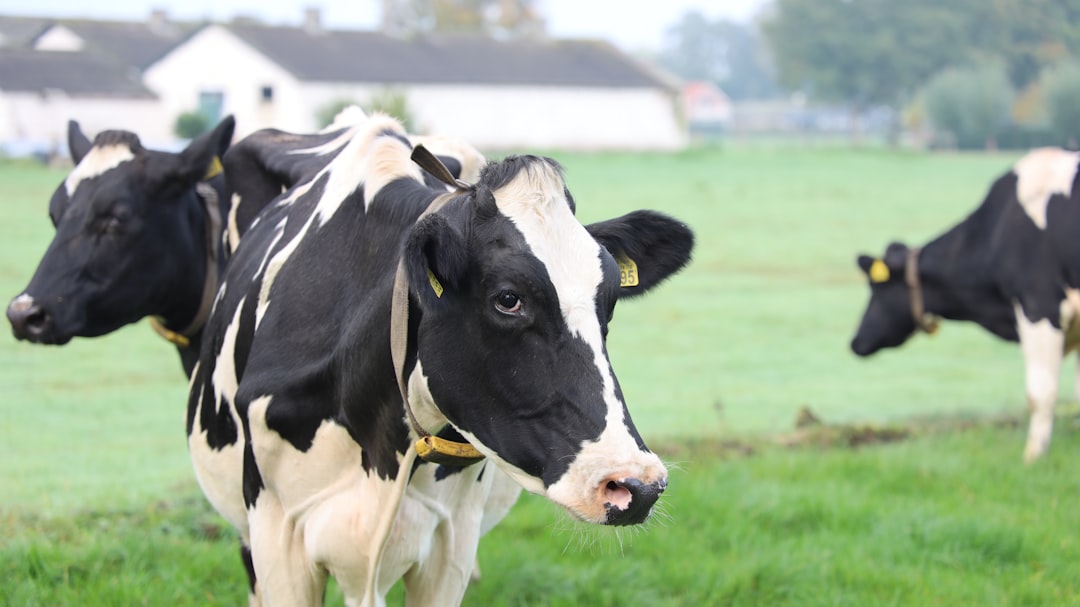Key Takeaways
• H-2B visa caps have been met for 2025, leaving employers unable to hire more legal seasonal workers.
• Federal crackdowns increase deportations and inspections, causing fear and disruptions for undocumented horse racing workers.
• $36 billion in annual revenue and many local economies depend on immigrant labor in the U.S. horse racing industry.
The horse racing industry in the United States 🇺🇸 stands on the edge of a major test, with new federal actions against illegal immigration raising questions about the future of both the sport and the people who help bring it to life. As rules change and the pressure on undocumented workers grows, racetracks, trainers, and owners are unsure how they will find the staff they need to keep running. Every job, from caring for horses to guiding them on the track, depends on immigrant labor—much of it drawn from people who move between countries for the chance at a better life. The story is full of numbers, policy twists, and human stories, and its end is far from clear.
Immigrant Labor: The Lifeblood of U.S. Horse Racing

Horse racing in the United States 🇺🇸 is much more than just the action fans see on a race day. Behind the scenes, thousands of workers groom, feed, and exercise horses every morning. Others clean stalls, walk the animals, and keep the tracks running smoothly. For decades, most of these jobs have been filled by immigrants, many of whom come to the United States 🇺🇸 on temporary work permits called H-2B visas.
H-2B visas are meant for jobs that last for only parts of the year, such as those in hospitality, landscaping, and animal care. That includes much of the work at America’s racetracks. According to reports [2], states like New York, where horse racing is big business, are among the largest users of these seasonal visas. Yet even with these permits, the need for workers often far outpaces the number of visas available.
Each year, the government sets a cap on how many H-2B visas it will give out. These spots are filled quickly—sometimes within days—meaning many employers are left without enough workers. It also puts huge pressure on workers themselves, who might lose their job if their paperwork does not come through.
Growing Pressure on Workers Without Legal Status
Even with legal paths like the H-2B visa, many people who work in U.S. horse racing do not have official permission to stay or work in the country. Industry groups quietly admit that a large share of their workforce lacks legal status. For years, some racetrack managers overlooked workers’ shaky papers, focusing instead on filling tough jobs that few Americans want to do.
But recently, everything has started to change. With recent policy shifts and a new push from federal officials to remove undocumented workers, immigration enforcement has become much stricter. There have been more worksite inspections, more deportations, and a new sense of fear within backstretches across the country.
Analysis from VisaVerge.com suggests that employers are feeling the pinch not only from increased enforcement, but from the unpredictability it brings. Owners and trainers must now weigh the risks of hiring workers without legal status, knowing a government check could happen at any time.
Visa Limits Leave Employers Scrambling
There’s more trouble on the horizon. In 2025, racetracks have already used up their yearly allocation of H-2B visas, meaning all positions that could be filled legally with seasonal workers have been filled. This has kept tracks open for now, but it leaves future hiring in question, especially as the industry looks ahead to the next season and beyond.
Once the government’s limit on H-2B visas is reached each year, employers must either wait until the next application cycle or go without workers. It’s not just H-2B visas that have caps; other work permits, like H-1B visas for skilled employees, also run out ahead of time. This makes planning for future needs almost impossible.
Industry leaders warn that without enough legal workers, racetracks could be forced to cut back on races, lay off staff, or in extreme cases, close entirely. This would not only hurt the people who love the sport, but also ripple outwards to many other businesses and workers who depend on horse racing for their income.
Political Shifts Add Uncertainty
The tougher stance against illegal immigration is rooted in bigger changes happening at the federal level. During the Trump administration, the government made it clear that removing undocumented immigrants was a top goal. High-profile arrests and deportations have touched many industries, but horse racing—with its heavy reliance on immigrant staff—has felt some of the strongest effects.
Some policies carried over from the last administration had allowed certain workers in jobs like horse racing to apply for green cards (permanent resident status) through their employers—a process known as employer sponsorship. While complicated, this gave a path for long-time workers to settle in the United States 🇺🇸 legally.
However, latest reports suggest these pathways may shrink or disappear completely as new rules focus on mass deportation rather than offering more legal options for workers.[4] This has made long-term planning very hard for both workers and employers.
When asked about the situation, Diana Pinones of the Maryland Thoroughbred Horsemen’s Association put it simply: “We rely 100% on immigrants… Everyone comes from another country.” Her words echo what many in the industry are thinking and feeling right now.
The Money at Stake
Horse racing is more than a pastime, and its troubles go beyond the stables and tracks. It’s a business with $36 billion in revenue in 2023 alone. That figure doesn’t just count ticket sales or prize money—it includes the impact on farms that raise horses, companies that supply feed and medicine, and the thousands of small businesses that earn a living from race-day crowds.
If racetracks cannot find enough workers—whether because too few people have legal status or because not enough H-2B visas are available—these places may have to scale back or even shut down. When that happens, tax revenue drops, local hotels and restaurants lose business, and workers in related fields—from farm suppliers to travel agents—may find their jobs threatened too.
In a sense, every drop in the starting gate’s clang could mean a shutdown for jobs much further down the line.
Daily Life on the Backstretch
For the men and women who work behind the scenes, fear and hope now sit side by side. For some, a visa means a secure paycheck and the promise that they can send money to families back home. For others, every day at work is shadowed by the worry that an immigration raid will take away their job, or worse, their chance to stay in the United States 🇺🇸 at all.
Employers are also feeling the squeeze. Many have invested years in training key staff and worry that losing even a few skilled grooms or hot walkers could disturb the well-oiled machine that keeps a stable running. Others hesitate to offer pay raises or invest further in their properties, unsure if there will be enough staff to keep operating.
Some tracks, hoping to avoid the chaos of sudden labor shortages, have begun reaching out to immigration lawyers for advice. Others are working together to press lawmakers for a solution—like raising the cap on H-2B visas, making it easier for longtime workers to gain legal status, or finding new ways to attract legal employees.
Community Response and Calls for Change
Leaders in the horse racing industry say they are not just trying to protect their profits. Many see themselves as advocates for workers who have spent years—sometimes decades—keeping American tracks alive. They point out that the jobs they offer are hard, demanding, and often come with long hours for modest pay. Native-born Americans rarely apply.
“We need a fair system,” said one track manager, who asked not to be named because of the tense political climate. “Millions ride on this—not just the horses.”
Industry figures have made urgent appeals to lawmakers in Washington, D.C., for more flexible rules, or at least temporary measures to keep their businesses running while longer-term solutions are debated.
Policy Outlook: Few Easy Answers
As the crackdown continues, chances for immediate relief seem slim. With both leading political parties focusing on the need to “get tough” on illegal immigration, few politicians want to be seen making it easier for migrant workers to come or stay. As a result, proposals to raise visa caps or open new legal pathways for workers have stalled.
At the same time, law enforcement actions are likely to keep increasing, putting more and more pressure on employers to follow strict rules. Fears of fines or even criminal penalties make some hesitant to take any risks, even if it means their stables go understaffed.
Meanwhile, workers without legal status face daily uncertainty. Many make plans quietly—stashing away what money they can, asking friends for legal advice, or considering whether to leave the United States 🇺🇸 before being forced out. It isn’t just their future at stake, but that of their families, both here and back home.
State and Local Impact: Beyond the Race Track
The effects of worker shortages will ripple well past horse racing’s most famous tracks. Rural areas with thriving horse farms could lose one of their biggest economic engines if racetracks close or cut events. Local governments that count on betting taxes to fund roads, schools, or police may be forced to find new sources of income.
Even big cities, known for their grandest races and festivals, could find themselves hit. When fewer visitors come to wager or enjoy the spectacle, tourist dollars dwindle—and with them, jobs across hotels, restaurants, and shops.
This chain reaction shows just how much the issue of illegal immigration and visa limits is tied to the heart of American communities.
The Road Ahead
Industry leaders, from stable owners to track managers, sit in waiting. Will lawmakers act to raise the H-2B visa cap? Will there be a new path for experienced workers to stay in the United States 🇺🇸 legally? Or will political pressure keep doors closed, causing parts of the horse racing world to slowly shut down?
Some hope for small changes—like a one-time increase in the visa cap, or pilot programs that help workers switch to more stable, long-term permits. Others call for a total overhaul, with smarter checks on who comes into the country but also more practical ways to fill jobs nobody else wants.
In the meantime, the 2025 season will likely go on with enough staff to finish out the year, but all eyes are already turning to 2026—and the question of who, if anyone, will be there to care for the horses, run the races, and keep America’s tracks alive.
Where to Find More Information
For those looking to find the latest updates or to check official requirements for hiring temporary workers, the U.S. Citizenship and Immigration Services (USCIS) provides detailed information on the H-2B Temporary Non-Agricultural Workers Program. This can be a helpful resource for employers, workers, and anyone interested in how these important jobs fit into the bigger picture.
Final Thoughts
The clash between strict immigration rules and the daily needs of the horse racing industry shows just how connected federal policy and local economies are. While the lines drawn by government are meant to keep order, they often have side effects that touch real people, real businesses, and even cherished parts of American sports. Whether through new deals, higher visa caps, or greater understanding in Washington, the people who make horse racing possible will be watching—and hoping—for solutions that don’t leave them out of work or out of luck.
Learn Today
H-2B Visa → A temporary U.S. work permit for non-agricultural seasonal jobs, crucial for the horse racing industry’s workforce.
Visa Cap → The yearly limit set by the government for the number of specific work visas, like H-2B, issued to foreign workers.
Employer Sponsorship → A process where an employer helps a worker obtain legal status, often leading to permanent residency (green card).
Backstretch → The area of a racetrack where horses are stabled and maintained, housing many key industry workers.
Immigration Enforcement → Government actions and policies aimed at identifying, removing, or penalizing individuals working or living in the country illegally.
This Article in a Nutshell
America’s horse racing industry relies heavily on immigrant labor, much of it through seasonal H-2B visas. Strict federal immigration enforcement, visa caps, and shifting policies threaten racetracks’ ability to operate. Industry leaders urge lawmakers for relief, as billions in revenue and many local jobs hang in the balance.
— By VisaVerge.com
Read more:
• Indian students hit hardest by US visa revocations, immigration lawyers say
• Delaware Immigration Enforcement Soars Under Trump
• Pedro Pascal Confronts Immigration Crisis at Cannes
• Indians Face Stricter UK Immigration Rules on Work Visas
• Singapore’s British roots shape its modern immigration outlook













